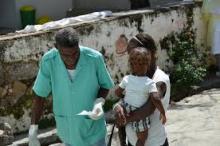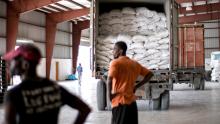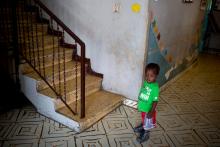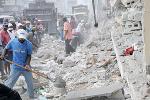Haiti Health Care System on Verge of Collapse
According to UNICEF, Haiti's health system is "on the verge of collapse" with six out of 10 hospitals in the country barely operational. UNICEF emphasised that violence, mass displacement, dangerous epidemics, and increasing malnutrition have put the country's already weakened health system under great strain but it may be supply chain breaks that cause it to collapse. Getting vital supplies, health care staff, and patients to where they need to be has become logistically challenging and dangerous due to gang-violence. It remains unclear, even after all this time, when the Kenyan-led security force will arrive - and without security, access to health care will suffer. The full BBC article by Jaroslav Lukiv follows.









